Welcome to the world of Starbuck Nation.
I'm reading a book called The Starbucks Experience, written by Joseph Michelli, a PhD in organization psychology and published last year (2007). As some of you know, I am a big coffee and tea drinker and at one time, wanted to open my own coffee shop. After working at a major coffee chain and an independent, it was a nice idea and dream. A romantic notion of the sexiness of coffee and the cool seduction of a beautiful product mixed with music and roasted beans.
Starbuck Nation is the world we live in today. They care about their employees by offering stock options, medical for part timers (20 hours of more), they use an independent agency to verify their CAFE standards of growing and trading in foreign countries, they are meticulous about coffee quality. I don't think their coffee is as good as Peets, by that doesn't matter. The blog entry is not about coffee or how wonderful Starbucks is as an corporate entity. Starbucks, a most visible and progressive corporation, has uncovered a bunch of thoughts and feelings I have that make me think that there is something intrinsically wrong with our society where corporations continually look for ways to motivate and inspire employees and to create a Third Place where people are connecting by monetary transactions.
Starbucks uses five principles, outlined in a green pamphlet, that are simple to use and execute in order to make customers happy. It's like Mao's Little Red Book; each employee carries it with him or her, reading the simple, almost folk-like guiding principles which give the employee the power to make every customer's experience consistently good and expected in any Starbucks anywhere in the world. Wow! It bothers me that people connect during a transaction in a corporate setting.
The Starbucks Experience, that the author raves about, has created an emotional feeling and attachment that customers and employees feel and act upon. The book is full of testimonials of real and regular people who seek out this Experience, to duplicate everywhere and talk about it like Starbucks is a friend or a comfort in their hectic lives. This is corporate marketing genius and synthesis: creating a Third Place where people know your drink preferences, your name perhaps and an intimate setting for bonding the customer to the product. On a basic level, Starbucks is one of the most visible and viable drug dealers in the world. Their caffeine delivery system vis a vis coffee is helping to create and condone addict behavior. On another level, their Five Priniciples for creating an intimate customer experience is changing people's attitudes about corporations being our friends.
Starbucks, like other corporations such as Apple, have created an emotional bond between customer and product. We should not have a connection with a corporation or it's product because it's based upon a paid transaction that is not a real or genuine experience. We think it's real, of course, we know that the sales person is not our friend, we also know that the product brings us joy but we are forgetting, I think, that this bond is transparent and only in the name of profit. We are being misguided and mislead to a point where we become acclimated to corporations buying up real estate and planting their seeds (products) in convenient locations for us to buy and enjoy. I am not against Starbucks or their seemingly good corporate practices. I am against creating false transactions which allow a soulless corporation to become one that has a "heart" and conscious. If this is the case, as it has been for a time, then we should hold corporations and their stakeholders (Board of Directors, shareholders) personally and legally responsible for any ill will and bad behaviors. Corporations are soulless places, entities governed and protected socially and legally and operate in a vacuum. If we change the standing of a corporation, then a customer, who is "craving" their pretentious latte with add ons, can feel great that the people who are practicing the Starbucks Experience are doing good in the world and not some marketing plan to make employees and customers zombies.
Today, we must empower employees to enable them to have control and authority so that they can provide a great experience to customers. Most companies figured this out and since this translates into more profit, it is almost expected of progressive corporations. Organizations are still vertical but this top-down authority has changed allowing happy employees to serve their hopefully happier customers. Cha-ching go the registers. Work has never been more fun! Ping-pong, 15 minute messages, dry cleaning on the premises, child care and the like. Is it ever about empowering people or is it just management finding more ways to make more money?
Before Starbucks instituted their five principles to their front line proletariat, were their owners in HQ wondering around aimlessly in Seattle, without some corporate philosophy to inspire them to feel good about or were they worried about high turnover and keeping costs down? The book interviews slews of upper management; I've never read about so many corporate layers and departments. It's worse than UCLA! Are people really sheep and must rally behind some pseudo corporate principles/philosophy? What were these managers thinking and doing before they got hooked on Starbucks rhetoric? Were they spewing and spouting their former companies philosophy in also a zealous way? Have they've changed philosophies like a hooker has changed pimps?
The author makes it seem that every body interviewed, from management to the barista, can smoothly articulate the Starbucks Experience for a thirty second sound bite. That's a wonderful accomplishment, I guess. However, this is One Corporate Mind. Is this how marketing hooks people and "brain wash" them into some sort of corporate belief system? The Five Prinicples are like the Tao De Ching or is is Register de Ching? Sorry, I couldn't resist!
The book uses a lot of real testimonials from inside and outside Starbucks. Regular, real people who speak reverently about Starbucks like it's their friend. It's marketing brilliance, really. There are thousands of people who feel wonderful about this company like a good and loyal friend. Am I missing something here? I don't have these feelings for any company. I like Peet's Coffee. I like Coffee Bean's coffee and tea. I like Toyota cars. Has Starbucks marketing created zombies out of people? Are we now going to have coffee World Wars now? The Allies are Starbucks and Peets and the Axis Powers are Coffee Bean and Doutor?
On page 92 the author wrote about how Starbucks gave away coffee for a citywide coffee break to train commuters. The author makes it seem that the main goal was to celebrate and surprise commuters and was not a gimmick to get customers into a Starbucks. This citywide coffee break was coordinated with Starbucks celebrating their Fair Trade Certification of coffee and got much attention. Michelli, the author, spoke enthusiastically about management wanting to surprise their customers, as part of their five principles. He made it seem that surprising customers was the only priority of the free coffee day and not the announcement of their good Fair Trade advocacy. Stupid. I'm not naive. Maybe it was poor editing but it was a marketing gimmick which surprised many but did not surprise the naive. In other words, amid the upper managers professing how making a customers' day is important for Starbucks, they are busy preening and coiffing their corporate image to be do-gooders. It's disgusting. It's fakery. They do want to make a difference in the lives of farmers but their smooth marketing tactics don't fake me out.
Another problem I have is that the author approached Starbucks to write a book when management is figuring out that thier business and that of the coffee industry is heading towards a recession. Starbucks is probably being proactive by allowing the author to research and interview people of Starbuck Nation because they will need to close stores and also cut back on building new ones. How can you continue to grow at five new stores a day? Starbucks has reached their growth in real estate terms and the book's magic is to market their corporate philosophy in order to help guide it to a smooth financial landing. It's imagery. Of course they are only 5 percent of all coffee buyers but they, like the author deftly points out, are the big name in coffee and most watched and criticised.
We want our employers to pay well, offer medical and financial benefits and allow us the freedom to create a work space that allows personal and professional growth. Why do we need to have personal growth from our jobs? It's a job or career. How can I get personal growth from an in-adamant object such as a corporation? Personal growth encapsulated in the setting of building and maintaining a business? The corporation cares about profit. It's a legal entity with no responsibility. Would I get personal growth living with a robot? No.
Subscribe to:
Post Comments (Atom)


































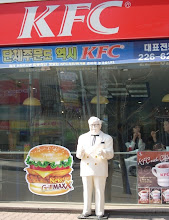

















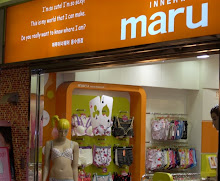
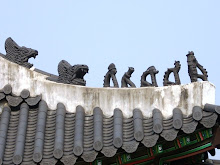


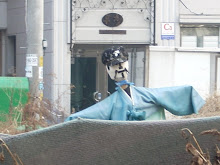






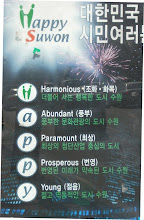






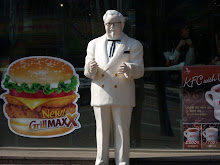
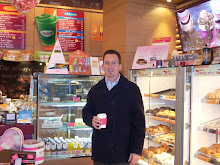











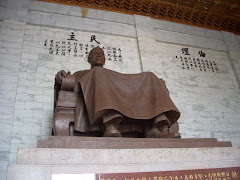

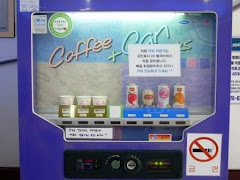


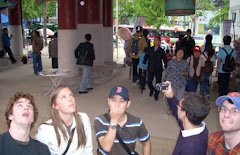























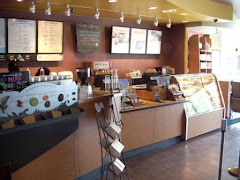


































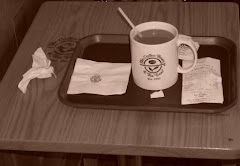







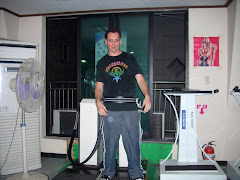
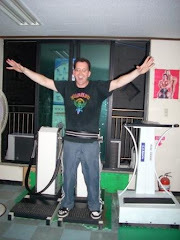









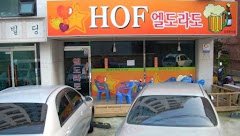
















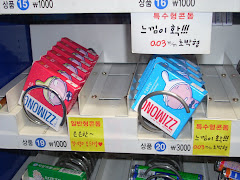






























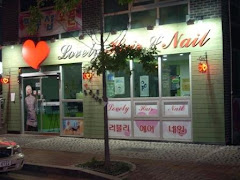



No comments:
Post a Comment